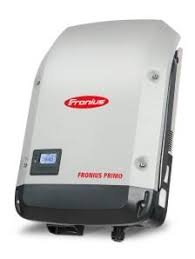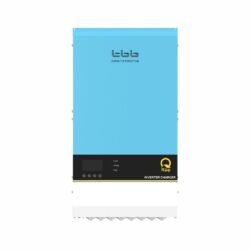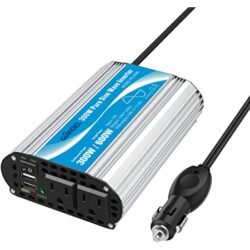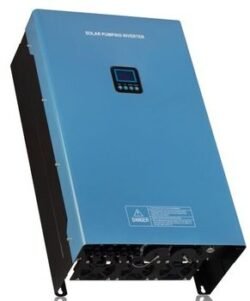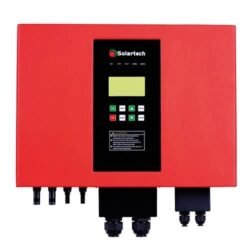Fronius Symo 10.0-3-M
KSh400,000.00 Original price was: KSh400,000.00.KSh350,000.00Current price is: KSh350,000.00. Ex.VAT
Fronius Symo 10.0-3-M
PRODUCT DETAILS
TECHNICAL DATA
INPUT DATA
| NUMBER OF MPP TRACKERS | 2 |
|---|---|
MAX. INPUT CURRENT (IDC MAX) | 27,0 / 16,5 A |
MAX. SHORT CIRCUIT CURRENT, MODULE ARRAY | 40,5 / 24,8 A |
DC INPUT VOLTAGE RANGE (UDC MIN – UDC MAX) | 200 – 1000 V |
FEED-IN START VOLTAGE (UDC START) | 200 V |
NOMINAL INPUT VOLTAGE (UDC,R) | 600 V |
MPP VOLTAGE RANGE (UMPP MIN – UMPP MAX) | 270 – 800 V |
| USABLE MPP VOLTAGE RANGE | 200 – 800 V |
| NUMBER OF DC CONNECTIONS | 3 + 3 |
MAX. PV GENERATOR POWER (PDC MAX) | 15 kWpeak |
GENERAL DATA
| WEIGHT | 34,8 kg |
|---|---|
WIDTH | 510 mm |
HEIGHT | 725 mm |
DEPTH | 225 mm |
| DEGREE OF PROTECTION | IP 66 |
| PROTECTION CLASS | 1 |
OVERVOLTAGE CATEGORY (DC / AC) 1) | 2 / 3 |
| NIGHT-TIME CONSUMPTION | < 1 W |
| INVERTER DESIGN | Transformerless |
| COOLING | Regulated air cooling |
| INSTALLATION | Indoors and outdoors |
| AMBIENT TEMPERATURE RANGE | -40°C – +60°C |
| PERMITTED HUMIDITY | 0 – 100 % |
MAX. ALTITUDE 2) | 2,000 m / 3,400 m |
| DC CONNECTION TECHNOLOGY | 6x DC+ and 6x DC- screw terminals 2.5 – 16 mm² |
| AC CONNECTION TECHNOLOGY | 5-pin AC screw terminals 2.5 – 16 mm² |
| CERTIFICATES AND COMPLIANCE WITH STANDARDS | ÖVE / ÖNORM E 8001-4-712, DIN V VDE 0126-1-1/A1, VDE AR N 4105, IEC 62109-1/-2, IEC 62116, IEC 61727, AS 3100, AS 4777-2, AS 4777-3, CER 06-190, G83/2, UNE 206007-1, SI 4777, CEI 0-16, CEI 0-21, NRS 097 |
| INTERFERENCE EMISSION CLASS | B |
OUTPUT DATA
AC NOMINAL OUTPUT (PAC,R) | 10 kW |
|---|---|
MAX. OUTPUT POWER (PAC MAX) | 10 kVA |
AC OUTPUT CURRENT (IAC NOM) | 14,4 A |
GRID CONNECTION (UAC,R) | 3~ NPE 400/230, 3~ NPE 380/220 V |
AC VOLTAGE RANGE (UMIN – UMAX) | 150 – 280 V |
FREQUENCY (FR) | 50 / 60 Hz |
FREQUENCY RANGE (FMIN – FMAX) | 45 – 65 Hz |
| TOTAL HARMONIC DISTORTION | 1,8 % |
POWER FACTOR (COS ΦAC,R) | 0 – 1 ind,/cap, |
EFFICIENCY
| MAX. EFFICIENCY (PV – GRID) | 98 % |
|---|---|
| EUROPEAN EFFICIENCY (ΗEU) | 97,4 % |
Η AT 5% PAC,R 3) | 87,9 / 92,5 / 89,2 % |
Η AT 10% PAC,R 3) | 91,2 / 94,9 / 92,8 % |
Η AT 20% PAC,R 3) | 94,6 / 97,1 / 96,1 % |
Η AT 25% PAC,R 3) | 95,4 / 97,3 / 96,6 % |
Η AT 30% PAC,R 3) | 95,6 / 97,5 / 96,9 % |
Η AT 50% PAC,R 3) | 96,3 / 97,9 / 97,4 % |
Η AT 75% PAC,R 3) | 96,5 / 98,0 / 97,6 % |
Η AT 100% PAC,R 3) | 96,5 / 98,0 / 97,6 % |
| MPP ADAPTATION EFFICIENCY | > 99,9 % |
PROTECTION DEVICES
| DC INSULATION MEASUREMENT | Yes |
|---|---|
| OVERLOAD BEHAVIOUR | Operating point shift, power limitation |
| DC DISCONNECTOR | Yes |
| DC REVERSE POLARITY PROTECTION | Yes |
INTERFACES
| WLAN / ETHERNET LAN | Fronius Solar.web, Modbus TCP SunSpec, Fronius Solar API (JSON) |
|---|---|
| 6 INPUTS AND 4 DIGITAL INPUTS/OUTPUTS | Interface to ripple control receiver |
USB (TYPE A SOCKET) 4) | Data logging, inverter update via USB flash drive |
2X RS422 (RJ45 SOCKET) 4) | Fronius Solar Net |
SIGNALLING OUTPUT 4) | Energy management (floating relay output) |
| DATALOGGER AND WEB SERVER | Integrated |
EXTERNAL INPUT 4) | S0 meter connection / Evaluation of overvoltage protection |
| RS485 | Modbus RTU SunSpec or meter connection |
TECHNOLOGY
SNAPINVERTER TECHNOLOGY
The SnapINverter generation of inverters features a simple, standardized mounting system, making installation and maintenance easier than ever. A special feature in the design of the device is that the connection area is separate from the power stage set compartment, with both being installed separately. The remarkably light connection area and all its cabling are fitted to the wall first, followed by the power stage set. The innovative hinged system makes installation and servicing extremely user-friendly. The inverter is simply placed in the wall bracket and then secured. This means that it is not necessary to remove the entire inverter for servicing, just the power stage set. All the cabling remains in place.
We are the first inverter manufacturer to offer a data communication package with fully integrated data logging, WLAN, Ethernet, energy management, web server, and a range of interfaces. The inverter is connected to the internet by network cable or WLAN – without additional cabling – and grants you the perfect overview of how the PV system is operating. Connection to third-party components is provided by means of interfaces such as Modbus TCP SunSpec, Modbus RTU SunSpec, or Fronius Solar API (JSON). The open interfaces can also be operated in parallel to the Fronius Solar. web.
The Fronius SuperFlex Design is an ingenious combination of technical performance attributes that make designing your PV system not only extremely simple but also incredibly flexible. The key performance factors of the SuperFlex Design are two MPP trackers, together with a high system voltage and wide DC input voltage range. Every DC input, and therefore every MPP tracker, is able to accommodate the entire nominal output of the inverter. Regardless of whether the inverter has to cope with different roof orientations, shading of one or two strings, or the use of residual modules: a Fronius inverter featuring integrated SuperFlex Design will satisfy every conceivable operational PV system planning scenario using just a single inverter model.
The Dynamic Peak Manager is a new MPP tracking algorithm that dynamically adapts its behavior when searching for the optimal operating point. Its special feature is that the Dynamic Peak Manager automatically checks the entire characteristic curve on a regular basis and finds the global Maximum Power Point (GMPP), even in partial shade.
Fronius inverters are ready for the Smart Grid of tomorrow. The inverters are optimally equipped to meet the technical requirements of grids in the future. A series of smart functions, known as Advanced Grid Features, are built into the devices. They include a number of control functions for optimum feed-in of reactive power and effective power. These functions are designed to enable stable grid operation even when the PV system density is very high and to prevent unwanted interruptions to feed-in and associated yield losses if grid parameters exceed the thresholds. Fronius inverters, therefore, help to guarantee the yield of a PV system. Furthermore, where feed-in limits are imposed, Fronius inverters can provide dynamic feed-in control with self-consumption taken into account. Just connect the meter and set the feed-in limit!
Today, an increasing number of grid operators in various countries are stipulating a PV power feed-in limit as a precondition before a system is connected to the grid. With dynamic power reduction, Fronius is offering a solution for optimum feed-in management. The Inverter supplies the household consumers with energy first and then reduces the system Output to the maximum energy feed-in permitted by the grid operator. With Fronius inverters, zero feed-in is also a possibility thanks to this function, meaning that no PV power is fed into the grid. The relevant requirements of the grid operator can be fulfilled by simply enabling a Setting on the inverter’s web interface.
Active cooling technology relies on one or more fans, which not only avoid hot spots but also regulate the air circulation inside the inverter, thus keeping the temperature of the power electronics low. This has a positive effect on the service life of the devices, optimizes yields, and reduces costs. At Fronius, active cooling is supplied as standard in all devices.
For more Specifications on Fronius Symo 10.0-3-M
Also check:
Brand
Fronius
Related products
Hybrid Solar Inverters
Hybrid Solar Inverters
Hybrid Solar Inverters
Hybrid Solar Inverters
Hybrid Solar Inverters
3.7Kw Single Phase Solartech (Sunverter) SV3 Solar Water Pumping Inverter


